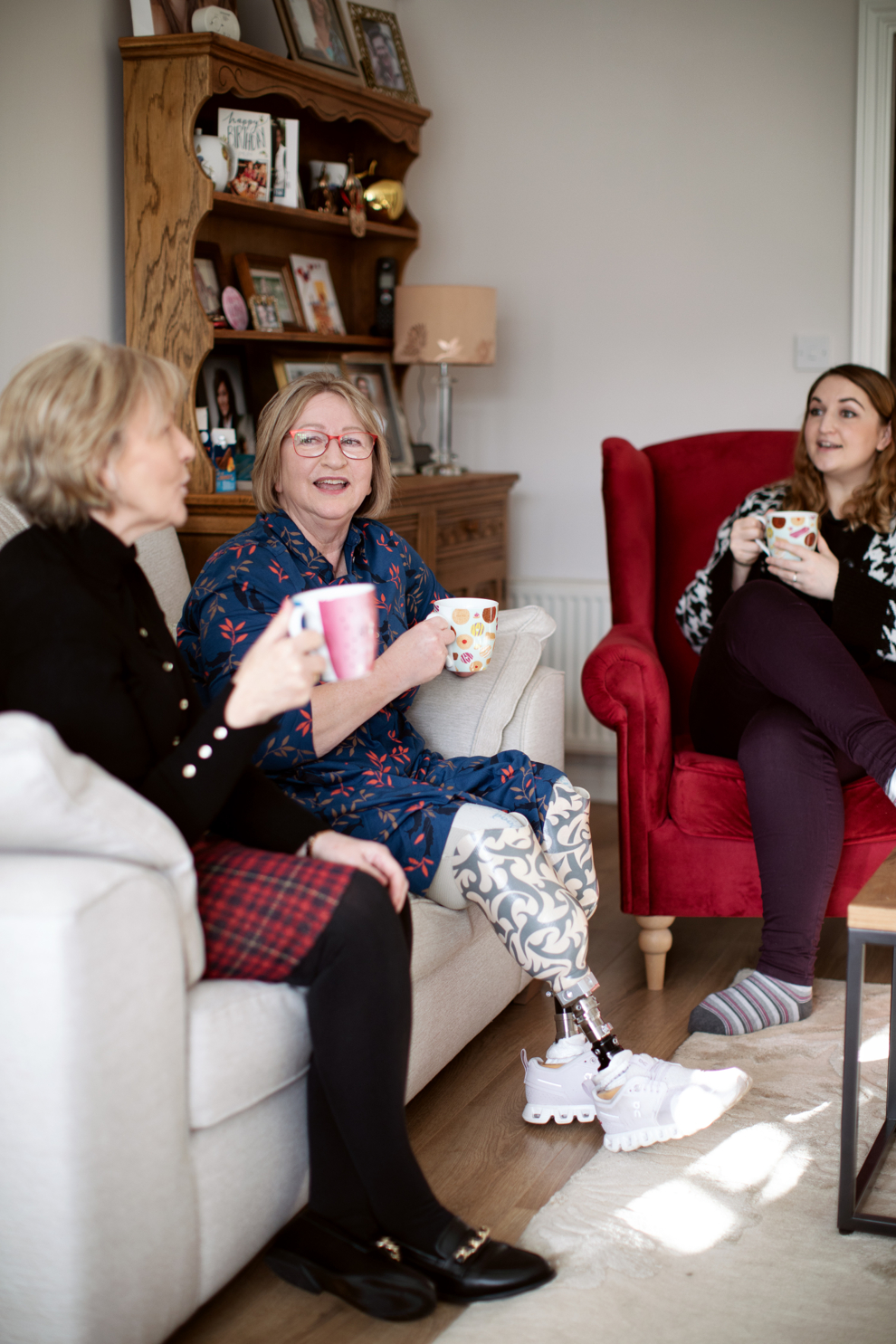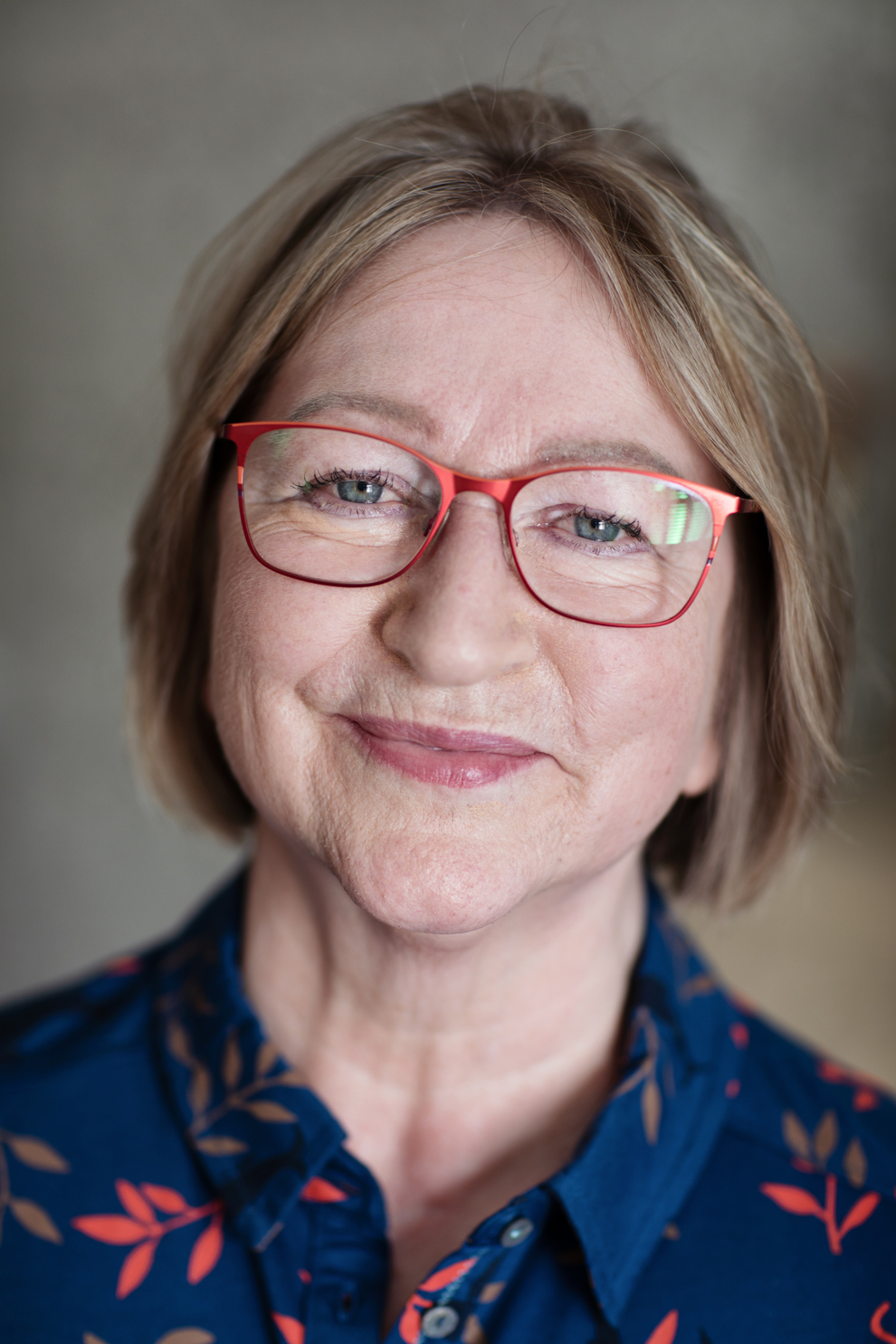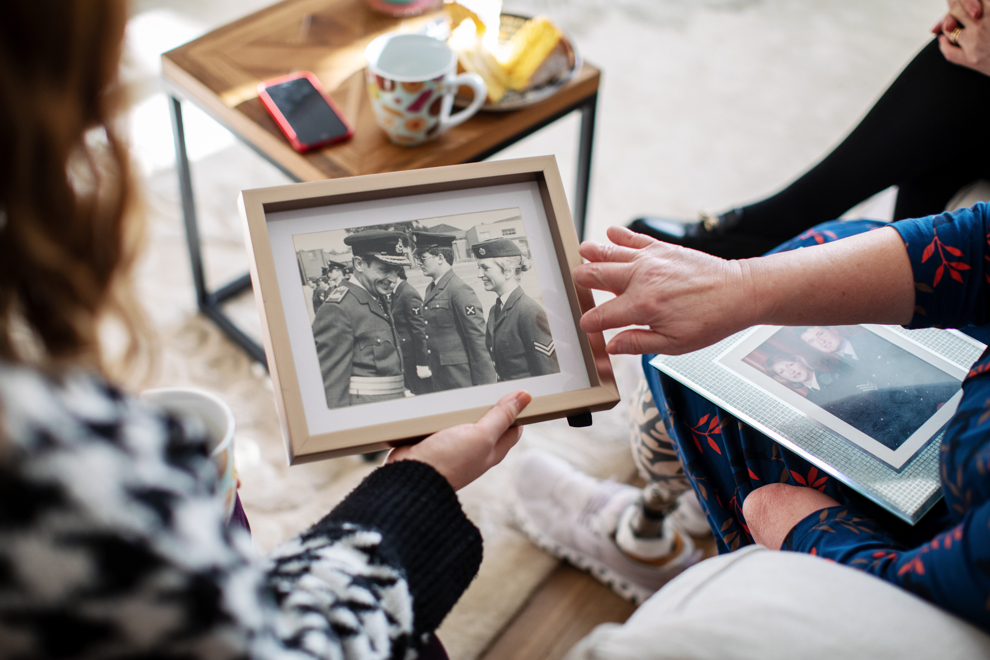Alison Evans, 63, served with the Royal Air Force for 14 years, leaving as a sergeant in 1992. In 2019, she was admitted to A&E with excruciating stomach pains but was misdiagnosed with food poisoning and sent home. Alison was soon blue-lighted back to hospital where she underwent emergency surgery before falling into a coma. She was actually suffering from a potentially deadly kidney blockage which led to her developing sepsis. When she woke from her coma, she was faced with the devastating realisation that she would have to undergo a triple amputation, losing both legs below the knee and her left hand, as well as the tips of the fingers on her right hand. This is her story…
Can you tell us a bit about your career? I joined the Women’s Royal Air Force (WRAF) in 1978. At the time, due to family circumstances, I wanted to leave home and become independent. I couldn’t have chosen a better career, and my family were proud. I worked with Phantoms at RAF Coningsby, Vulcans at RAF Waddington, and Harriers at RAF Cottesmore. I can still name the different aircraft, but the Vulcans are my favourite.
Your future husband also served… Yes, he was in the RAF too and we lived all over the UK and in Cyprus. I left the Forces when we had our daughters; I brought up the kids and did lots of jobs wherever my husband, Emyr, was based.
But you became unwell out of the blue? Back in 2019 I began to feel very tired and lacking in energy. I was sent for a scan but was told I was healthy. I was losing weight and wasn’t feeling like myself. I came home from a dog walk one day with a pain in my abdomen. It became very painful so I called 999. I was rushed to A&E but unfortunately I was misdiagnosed. The doctors didn’t give me a scan, and I swiftly developed sepsis.
And your condition soon became critical? I was rushed back to hospital but I can’t remember a thing after getting into the ambulance. I was in a coma for three weeks. Doctors called my family to my bedside at one point because the prognosis was so bad.
What do you remember from the early days after you came around? It was awful. I couldn’t speak because I’d had a tracheotomy. I tried to communicate with my family through sign language, but that was frustrating. I was dazed and could see that there was obvious damage to my arms and legs; that was my biggest concern.
When did you realise that the amputations were necessary? The surgeon, who happened to be a Royal Naval Officer, thought there might be some hope of recovery, but after six months of trying to save my limbs it became clear that amputation was the only route. With the benefit of hindsight, I wish they’d amputated right away rather than me having that fruitless hope. From getting sepsis in June 2019 I had my first operation six months later, in the December.
How was your rehab? The initial aftermath was horrendous. Emyr probably took the brunt of it because our daughters have grown up and moved away. But as soon as I was pointed in the direction of prosthetics I was fast tracked, so that helped a lot. By March 2020 I had prosthetic legs, and I taught myself to walk during lockdown. It’s been a long process.
Everyone around you says how positive you have remained… This is not something I would want anyone to go through, and I obviously wish it hadn’t happened, but as my eldest daughter keeps telling me; I’m still here. You have to look for the positives and get on with life. One of the consultants on the amputation ward told me that he’d never heard laughter on the ward until he heard me joking with some of the other ladies one day.


And you’re still able to enjoy life? I’m getting on brilliantly with my prosthetic legs. I’m never going to be like the younger amputees – my fitness just isn’t there – but I do well enough and I can get around. I went to see Robbie Williams in concert in Manchester towards the end of last year, and I’ve got lots planned for 2023. I’m walking better all the time, and my friends are impressed. I can’t walk for miles, but I am able to get around short distances without needing to use a wheelchair.
How much has your family helped? I’ve had amazing support from my daughters and my husband. I need help with things like putting my prosthetics on and getting into the shower, so I couldn’t live independently. I can’t dry my hair like I used to, I can’t do up buttons or get dressed like I used to. I need help, but my husband can still go out; he likes to keep fit, and I’m OK on my own in the house when he’s out. My daughters have moved away from home, but they are a great support, too. My eldest is a doctor in the geology department at Oslo University, and my youngest is involved in marketing for River Island and lives in Brixton, so I’m a very proud mum.
How has Blesma helped? After my amputations, Emyr reached out to a few charities and Blesma was the only one that got back to us. We weren’t looking for money, just to find some connections and advice. All I can say is thank goodness he found Blesma because the charity is fantastic. The best thing about it for me is the way it connects you with other people. I wouldn’t have known there are folk with similar issues living close by. It is so beneficial; it gives you a real sense of community.
With the benefit of hindsight. I wish they'd amputated right away, From getting sepsis in June 2019 I had my first operation six months later.
It’s that ‘Member helping Member’ philosophy, isn’t it? Yes. We have had a little bit of financial help from Blesma, but that’s not what it’s about; it is all about making those vital social connections. I now know lots of Blesma Members and what they’ve been through. I’ve got their contact details in case I need to call them, and we have local meet-ups and brunches. We went for a Christmas lunch with them last year, which was brilliant. It was only 10 minutes away from where we live. No other charity has offered me that kind of social interaction.
And the Association has also helped you with a new mobility chair… Yes. I had mentioned to my Support Officer at one point that I was going to get a mobility chair that could fit into Em’s car. I had absolutely no intention of asking for any money from Blesma but the Association wouldn’t hear of it and made a contribution towards it. I just thought: what wonderful people. Without Blesma, I’d be lost.
Is there anything you would like to do with Blesma in the future? I’ve enjoyed the social side of things already. We’ve been to a seniors’ residential event in Nantwich, and we made some good friends there. I also went to the women’s only event in Sheffield last year. There were people there of all ages and they were all very nice. It’s lovely to meet new Members and do different things.
There are lots of activities, too… I can’t really see myself taking part in things like scuba diving, but I do plan to do more social things. At Blesma events people talk to you and give you advice and empathy. You meet people with all different disabilities; whether it’s someone who has used a wheelchair for 40 years, someone who has had a double amputation, or someone who’s missing an eye. Either way, you all talk to each other and share things. The Association has been invaluable.

We can help
We are dedicated to assisting serving and ex-Service men and women who have suffered life-changing limb loss or the use of a limb, an eye or sight. We support these men and women in their communities throughout the UK. Click the link below to find out the different kinds of support we offer.
Get Support
Leave a comment
Join fellow Members and supporters to exchange information, advice and tips. Before commenting please read our terms of use for commenting on articles.